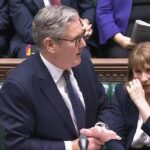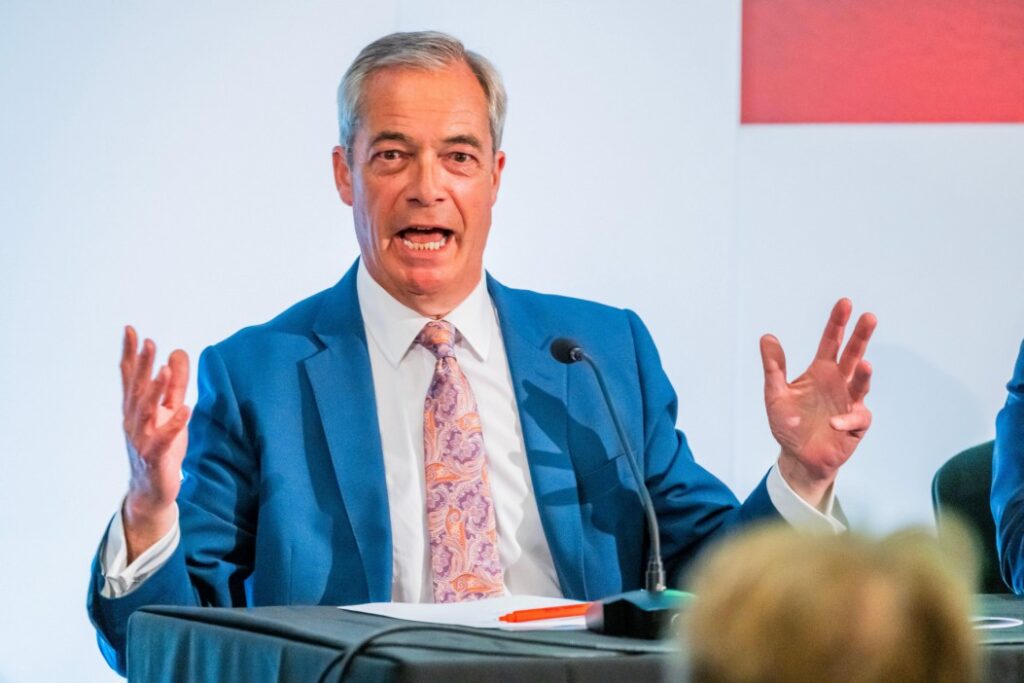Nigel Farage and Reform UK would emerge as the dominant force in British politics if a General Election were held today, according to a new poll. The survey, conducted by More In Common using their innovative MRP (Multilevel Regression and Post-stratification) model, suggests that Reform UK would secure 290 seats, positioning them as the largest party in the House of Commons.
Meanwhile, Prime Minister Keir Starmer and the Labour Party are facing a potential political catastrophe. The poll indicates that Labour would plummet to just 126 seats, a dramatic fall from the landslide victory that brought Starmer to power only a year ago. This would mark a loss of 285 seats, leaving Labour with less than half the number of seats compared to Reform UK.
Reform UK: A Rising Political Force
The findings highlight a significant shift in the British political landscape, with Reform UK capitalizing on the perceived failures of the current government. Although still short of the 326 seats required for an outright majority, the poll suggests that Farage’s party is nearing the threshold needed to govern independently.
The poll, which surveyed over 10,000 Britons, reveals that Reform UK is making inroads into traditional Conservative strongholds, capturing 59 former Tory seats. This represents a seismic shift in voter allegiance, with the Tories projected to fall to just 81 seats, a decrease of 40 from the previous year.
Impact on Other Parties
The Liberal Democrats are forecasted to slightly increase their presence in Parliament, securing 73 seats, while the Scottish National Party (SNP) is projected to gain significantly, reaching 42 seats, an increase of 33 seats.
Starmer’s Approval Plummets
Keir Starmer’s personal approval ratings have nosedived to a record low of -43, the worst since he assumed office. This decline in popularity is compounded by the poll’s suggestion that most of Starmer’s Cabinet, including Deputy Prime Minister Angela Rayner, Chancellor Rachel Reeves, Home Secretary Yvette Cooper, and Health Secretary Wes Streeting, would lose their seats if an election were held today.
“It is an unhappy birthday for the Prime Minister,” said Luke Tryl, UK director of More In Common. “His personal approval has hit an all-time low, while Britons blame him rather than his Chancellor for the welfare mess and think he has lost control of his party.”
Implications for the Future
The poll results underscore a rapidly evolving political environment in the UK. With 223 Labour seats predicted to flip directly to Reform UK, many in Labour’s traditional heartlands across the North and Wales, the potential for a major political realignment is evident.
Luke Tryl further commented on the transformative nature of the current political climate, noting, “Although we are a long way from an election and much will change between, Nigel Farage’s party are demonstrating that they are now close to the level where they could command an outright majority.”
This development follows a year of political turbulence and public dissatisfaction with the current administration’s handling of key issues. As the UK navigates this period of uncertainty, the potential for Reform UK to become a major political player is becoming increasingly plausible.
The announcement comes as political analysts and commentators speculate on the long-term implications of these findings. With the next General Election still some time away, parties will be closely monitoring public sentiment and strategizing on how to regain or maintain voter support.
The move represents a significant challenge for Keir Starmer and the Labour Party, who must now contend with both internal and external pressures to regain their standing in the eyes of the electorate. As the political landscape continues to shift, the coming months will be crucial for all parties involved.
 Portsmouth Eyes Transfer as Brescia Faces Bankruptcy Crisis
Portsmouth Eyes Transfer as Brescia Faces Bankruptcy Crisis Southsea Venue Vandalized: Police Seek Suspect in Window-Smashing Incident
Southsea Venue Vandalized: Police Seek Suspect in Window-Smashing Incident South-East Leaders’ Loyalty to Tinubu Transcends Party Lines, Says Minister Umahi
South-East Leaders’ Loyalty to Tinubu Transcends Party Lines, Says Minister Umahi Starmer Defends Reeves Amid Emotional Commons Moment and Market Jitters
Starmer Defends Reeves Amid Emotional Commons Moment and Market Jitters Rachel Reeves: Tears and Turning Points for the UK Chancellor
Rachel Reeves: Tears and Turning Points for the UK Chancellor